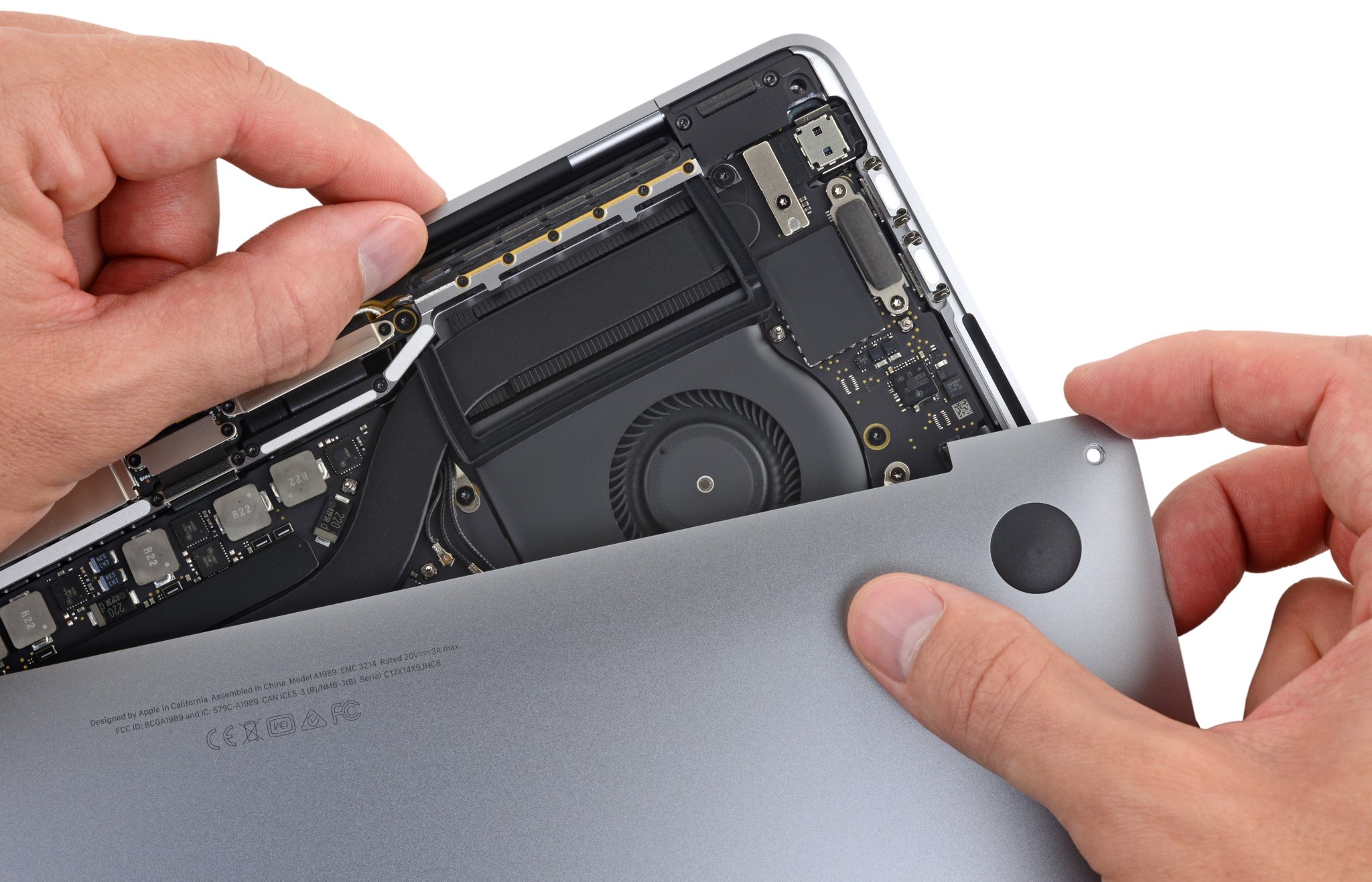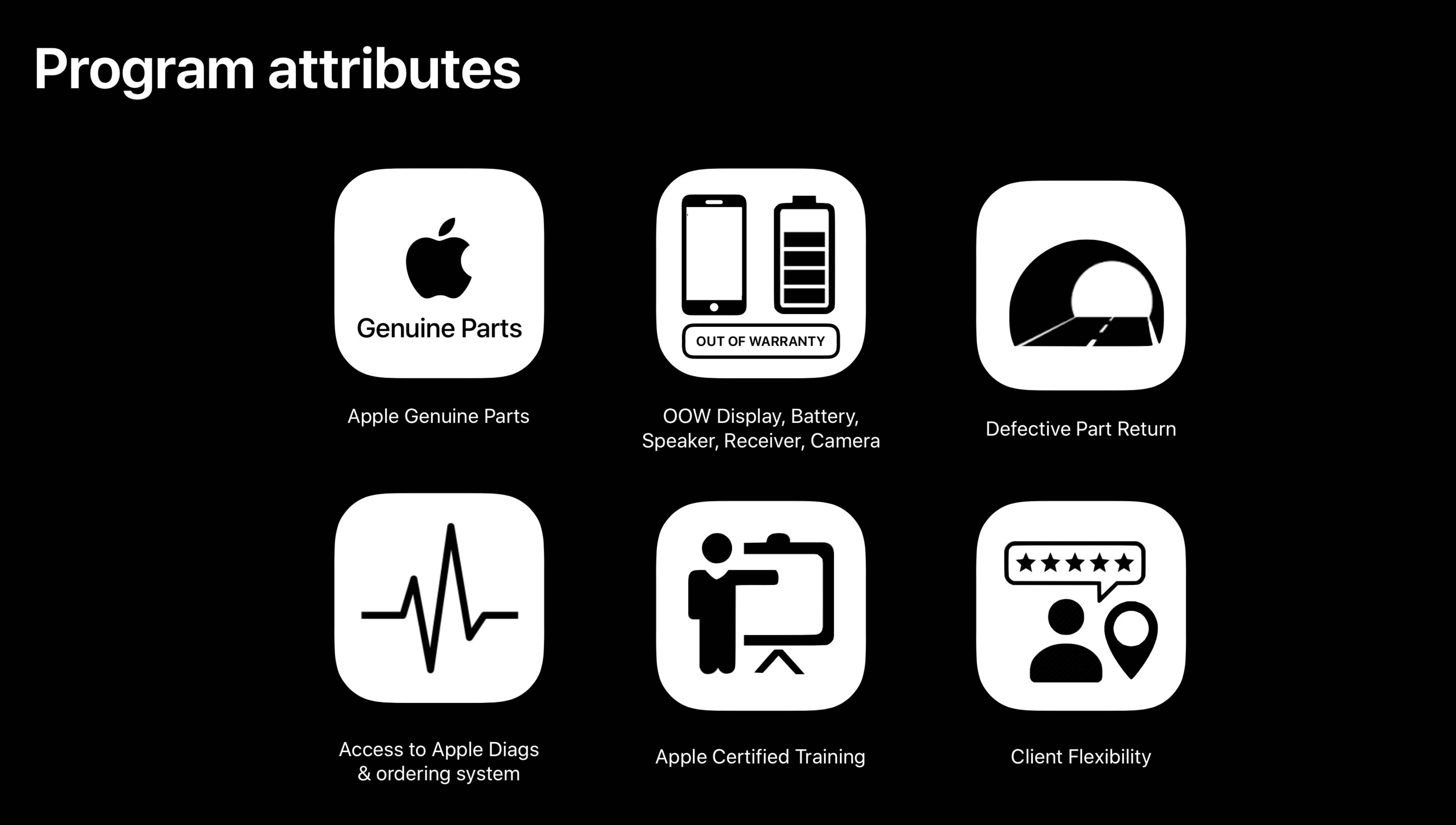
Apple may be softening its stance on repair laws after vehemently fighting for years, across nearly two dozen US states, against right to repair legislation.
According to an internal document, titled “Apple Genuine Parts Repair” and dated April 2018, Apple is now providing more repair companies the components and diagnostic software.

According to the Motherboard:
The company has begun to give some repair companies access to Apple diagnostic software, a wide variety of genuine Apple repair parts, repair training and notably places no restrictions on the types of repairs that independent companies are allowed to do.
The presentation notes that repair companies can ‘keep doing what you’re doing, with Apple genuine parts, reliable parts supply and Apple process and training.’
The document states that there are currently 3,700+ Apple Authorized Service Providers.
It also mentions four repair chains—Mobile Kangaroo, AA Mac, Simply Mac and Makina Technologies—that now have access to the company’s diagnostic tools. Mobile Kangaroo has confirmed it recently got “premium status” from Apple without divulging details.

Kyle Wiens, iFixit’s CEO and a prominent member of the right to repair movement:
This looks to me like a framework for complying with right to repair legislation. Right now, they are only offering it to a few megachains, but it seems clear to me that it would be totally possible to comply with right to repair.
As you probably know, iFixit performs product teardowns of consumer devices, sells repair parts and provides free online repair guides for consumer electronics on its web site. Founded in 2003, the site is a result of Kyle Wiens not finding a repair manual for his iBook G3.
This could also be Apple’s attempt to reduce pressure from the public and quietly kill the legislation by telling lawmakers it’s given the repair community what they want.
The internal Apple presentation undercuts many of the arguments that electronics industry lobbyists have made, namely ones that note that repair is too difficult for any ‘unauthorized’ people to do or that argue the security of products could be undermined by giving diagnostic tools to independent companies.
Apple executives have in the past argued that iPhones are too ‘complex’ for the company to open its repair supply chain. The presentation, however, notes that people outside of Apple are perfectly capable of doing good repair work. It says that independent repair companies will ‘own their customer’ and that ‘you stand behind your workmanship.’
To quickly get you up to speed, major companies from tractor maker John Deere to appliance companies such as LG to technology giants like Apple, Samsung and others have gone out of their ways to make it way harder, preferably impossible, for users to repair their own devices.
Some of the tricks include authorized repair programs, software that prevents repair, controlled sale of replacement parts to independent companies, extended warranties and so forth.
Introduced in 20 US states, right to repair legislation seeks to force electronics manufacturers to sell replacement parts and repair tools to independent repair shops and the general public whilst making internal repair guides and diagnostic tools public.
Currently, Apple’s authorized technicians can switch out screens and batteries, but that’s pretty much it. Reversing that policy would be a major step toward right to repair.
How cool would it be if Apple actually backed the right to repair movement?
Image: MacBook Pro teardown analysis conducted by iFixit